|
This week's homily on sin brought up a host of questions during our RCIA class. Are some sins worse than others? Why do we need to confess to a priest? Why does the Pope go to confession so often? Now, truth be told, I was a little off my game that morning. It had been a late night, but my co-catechist and I were doing a fairly good job of breaking open a subject we had not prepared to talk about.
Then, however, came the question, "But are little sins every now and again really a big deal? I mean as long as you are generally a good person, aren't a few sins here or there ok?" Well, I fell flat on my face, and found myself waste deep in relativism. Thankfully my partner saved me from committing the greatest sin of any minister: leading the faithful astray. My big blunder in the vocal vomit of my answer was forgetting Jesus. In my attempt to reassure this person that we are all human, and mistakes and sins are part of that humanity, I had forgotten the all-important challenge of being ever more human, that is, to be ever more like Christ. The Pope goes to confession so often because he has grown close to Christ in his life, and encountering the person of Jesus so intimately, he more easily recognizes the imperfections that you and I tend to miss completely. Confession then is not meant to berate you for the bad things you have done, nor is it meant to embarrass you by telling seemingly trivial things to a strange man in stranger clothes. Rather, Confession is about looking at your relationship to Christ and seeing where you were not Christ-like in your life. After all, all sins are relational because sin never affects me individually. Sin affects those around us: our family, friends, co-workers, and God. When we ask God through the priest to forgive our sins we are asking God to begin the process of healing those strained and broken relationships in our lives. Viewing sins as a relational reality also requires that we not stop our penitence once we leave the confessional. Being more Christ-like means working to mend those relationships we have strained by our selfish and sinful actions. We are challenged to become more selfless, more giving, and more loving as Christ was in his life, death and resurrection. Throughout life we are very much on a journey to know and encounter Jesus ever more closely, and it is in that pilgrimage that we see how we ought to live as women and men of faith. So, to finally answer that person’s question, yes, we are human and we will make mistakes. We will constantly need to return to confession again and again often for the same little things we keep doing. We are on a journey to be more Christ-like, and that encounter challenges us to love and act as he did. The great hope in our life is that we get better at being Christians as we deepen our relationship with Christ. Confession gives us the grace to do this, and to be transformed ever more fully into who we were meant to and will become. Brian Niemiec is the Curriculum Consultant for the Catholic Apostolate Center Editor's Note: This Post was originally published on Catholic How and was reprinted with permission
0 Comments
“I was dazzled by a girl I met… I was struck by her beauty, her spirit. I was bowled over for quite a while, she made my head spin.”
Yes, even Pope Francis has experienced falling in love. Much more than just hormones, neurochemicals, emotions, or a pyscho-physical state, love is an ongoing relationship between two people. It is stable, yet grows and is lasting; it offers affection, support, help, and hope (cf. 1 Corinthians 13). If a relationship is not rooted in this love, how can it last? Just as God’s love is total and without end, so must be the love upon which a family is based. In a world where too many settle for an empty version of love and the family unit is under attacksuffering difficulty, it becomes critical that we remember the sacredness of the sacrament of marriage and its purpose as instituted by God. God’s first command to Adam and Eve was to “be fruitful and multiply” (Genesis 1:28). He had not joined our first parents solely for their own benefit or pleasure. Their every act in God’s new creation was to glory and praise Him. Similarly, a man and a woman do not enter into a marriage for their own happiness, but to “love and honor” each other “in good times and in bad… all the days of [their] life.” The couple reflects God’s bearing fruit in their lives, a continuous sign of God’s Power in the world. Everything they do, be it chores, budgeting, cooking, or relaxing, whether separately or together, is a living out of their sacrament— even the smallest acts in the life of a married couple have power hidden within them to make them holy. As married life is the ground of holiness, love is the seed planted by God. Life, together with its agonies and joys, pain and sacrifices, frustrations and tensions, moments of exultation and despair, all act as the rain and sun, thunder and lightning on a young sprout. Of course, disagreements are a normal part of the married lifestyle as well as the human condition. No one is perfect but the faults and weaknesses of each one are compensated for by the other’s virtues. Each possesses what the other lacks. Rather than causing a rift between the two, this results in a loving dependence on each other for spiritual growth and transformation. By forming a habit of looking at each other in a sacramental way— seeing the beauty of God in each other’s souls and seeking to enhance that beauty by building up each other— a married couple reflects God’s blessings and love. The Catechism of the Catholic Church acknowledges this by making no distinction between the roles of the man and woman in the family (see CCC 2221-2231). Rather, both are called to provide the good example and instruction of both academic reason and moral and spiritual formation to their offspring, who in turn contribute to the growth in holiness of the parents (see CCC 2227). Being married to one another, the man and his wife are entrusted with the welfare of the family— woe to those who neglect this responsibility (see 1 Timothy 5:8)! The purpose of raising of a family is not to give glory to oneself but to selflessly assist each other in reaching the Kingdom of God. This is no easy task, as it is a great challenge to devote one’s life to those around him/her! To do this requires great love, the strongest bonding force, and we are reminded of this in a reading commonly used in weddings: Husbands, love your wives, just as Christ also loved the church and gave Himself up for her, so that He might sanctify her, having cleansed her by the washing of water with the word, that He might present to Himself the church in all her glory, having no spot or wrinkle or any such thing; but that she would be holy and blameless. So husbands ought also to love their own wives as their own bodies. He who loves his own wife loves himself; for no one ever hated his own flesh, but nourishes and cherishes it, just as Christ also does the church, because we are members of His body. “For this reason a man shall leave his father and mother and shall be joined to his wife, and the two shall become one flesh.” This mystery is great; but I am speaking with reference to Christ and the church. Nevertheless, each individual among you also is to love his own wife even as himself, and the wife must see to it that she respects her husband. (Ephesians 5:25-33) Finally, Matrimony responds to a specific vocation and must be remembered as sacred. It is a consecration: the man and woman are consecrated in their love. The spouses, then, are entrusted with a mission, so that by starting with the simple ordinary things of life they may make visible and known the love with which Christ loves His Church— that is continuing to give His life for her in fidelity and service. In spite of the difficulties experienced by married couples, the important thing to remember is the nurturing of their bond with God, Who is the foundation of and the cause of joy in the marital bond. Pope Francis, though he ultimately gave himself to the ultimate Spouse, offers these words of advice for preserving “what God has joined, [and] men must not divide”: There are three words that always need to be said, three words that need to be said at home: may I, thank you, and sorry. The three magic words. May I: so as not to be intrusive in the life of the spouses. May I, but how does it seem to you? May I, please allow me. Thank you: to thank one’s spouse; thank you for what you did for me, thank you for this. That beauty of giving thanks! And since we all make mistakes, that other word which is a bit hard to say but which needs to be said: sorry. Please, thank you, and sorry. With these three words, with the prayer of the husband for the wife and vice versa, by always making peace before the day comes to an end, marriage will go forward. The three magic words, prayer and always making peace. Thomas Wong is an undergraduate at The Catholic University of America in Washington, D.C. Today, the largest pro-life movement in the world will occur as thousands march the National Mall in Washington, DC, peacefully and passionately for the sake and sanctity of human life. Every year, the March for Life occurs on the anniversary of the historic Roe v Wade decision that made abortion legal in all 50 states. Despite the sorrow that fills the memory of this day, we have been called, as a community of life, to stand with zeal (word choice) for everyone’s right to life, not just this day, but every day of our lives.
I have never participated in the March for Life before, but I am very excited to finally take part in some of the activities that are occurring this week in our nation’s capital. From hosting eager pilgrims coming from Texas to march, to pro-life talks and dinners, and the National Prayer Vigil for Life, it has been an inspiring week so far. The pro-life community is strong and vibrant and it is a joy to be a part of that spirit. However, as I’ve been reflecting on the meaning and beauty of this week, I am realizing the vital call that is bestowed upon us to witness the beauty of life every day of our lives. During this week and beyond, we must take the time to see the value in every life and how we can share that with others. I want the world to know that the beauty of life is all around us: the young, the old, the rich, the poor, and those in-between. It is in those risking their own life for the sake of others. The beauty of life is all around the world in different races, cultures, and experiences. The beauty of life is in the day to day interactions of our community, at home, work, and school. The beauty of life is in experiencing nature. The beauty of life is in sharing our own lives with others. Most vividly, as Catholics we know that the beauty of life exists in the Church, as Jesus Christ who teaches us how to love perfectly: “No one has greater love than this, to lay down one’s life for one’s friends” (John 15:13). To love perfectly is truly selfless. Those committed to a culture of life live as selfless witnesses, caring for the sanctity of each human soul through love. In our culture where instant pleasure and satisfaction are the façade for human happiness, we must teach others that there is authentic joy in protecting and standing for those who may not have a voice of their own. So many have come before us and instructed us in Christ's example, in the way of life. Blessed Mother Teresa, who devoted herself to the Cross by serving Christ in the slums of India said, “Any country that accepts abortion is the poorest of the poor” and that, “Human rights are not a privilege conferred by government. They are every human being’s entitlement by virtue of his humanity. "Not only as Americans, but as faithful citizens of the kingdom of God, we are called to protect the preciousness of every life created by God. These thoughts are my prayers, especially today, as we reflect on the Right to Life, particularly that America and our world will come to embrace a culture of life for all peoples, and I hope that you will live these prayers with me wherever you are marching. Whether you are in our nation’s capital today, at home, or at a march in spirit, know that your witness matters and is essential to stamping out a culture of death and living a culture of life. In order to bring life to the world, we must live in love. Let us ask God to bless this week that He may touch the hearts of many who need to hear his words of love and mercy, and that together we can increase the culture of life. Alyce Anderson is a teacher in Washington D.C. Some time ago, I wrote about the Hallelujah Chorus from Handel’s Messiah. I mentioned how often times we hear that piece performed around Christmastime, although that portion of the Messiah is actually about Easter and the Resurrection. Now that the Nativity has arrived, perhaps it might be interesting to look at what Handel did use to interpret the Birth of Christ.
“For Unto Us a Child is Born” is taken from the words of the prophet Isaiah (Is 9:6): For unto us a Child is born Unto us a Son is given And the government Shall be upon His shoulder And his name shall be called Wonderful Counselor The Mighty God The Everlasting Father The Prince of Peace In that one verse, the prophet presents so much insight into the aforementioned Child to be born. He will be a son, he shall reign over a great dominion, and he shall bring peace. Well, only one child fits that description: Jesus Christ. When Isaiah tells of a son being given to the faithful, he is not just talking about the neighbor’s kid. He foretells of a son presented as a gift to all who believe. And indeed, in Christ, we have not only a child but also the moment when the word became flesh and dwelt among us (Jn 1:14). And through that word, humanity is redeemed. Through Christ, death no longer has power. The gates of heaven are opened to all that would follow he who is called the Son of God. “The kingdom of heaven is at hand,” declared John the Baptist (Mt 3:2). Yes, we believe that at the end of time Christ will establish his kingdom for all eternity (CCC 1042). But in the meantime, his kingdom exists on earth in the form of the one, holy, catholic, and apostolic Church (CCC 763). Founded by Jesus with a mission to manifest the will of God, the Church waits in hopeful anticipation for the establishment of Christ’s eternal reign. It is very appropriate, then, for Isaiah to foretell a Prince of Peace. Not only would Jesus go on to proclaim a kingdom of love but also, when he returns, establish a heavenly domain that knows no end. At Christmas, we celebrate both a beginning and an end. We celebrate the very beginning of Christ ruling the hearts and minds of the faithful while also looking toward the end when he will come again and his “kingdom will have no end.” Victor David is a collaborator with the Catholic Apostolate Center and a staff member at The Catholic University of America in Washington, DC. On September 14th, we celebrate the feast day of the Exaltation of the Holy Cross. In the Gospel of John, Jesus tells us: “No one has greater love than this, to lay down one's life from one's friends” (John 15:13). That love is never more evident than our Lord's passion and death on the Cross. By that Holy Cross, we have been redeemed. Jesus Christ foretold his Passion to the Apostles, instituted the Eucharist at the Last Supper, and fulfilled God's plan for human salvation at Calvary upon that Holy Cross. This, my friends, is the greatest love ever known to humankind; by the grace of God, we will come to know the fullness of God's love in eternity. The promise of eternal salvation was made possible upon that Cross and we, as Catholics, are called to pick up our cross and follow Christ daily. This is a very hard thing to accomplish in today's world.
Jesus gave us the Holy Spirit at Pentecost to guide and strengthen us while following his commands. Paul tells us: “I have the strength for everything through him who empowers me” (Philippians 4:13). Jesus Christ empowers us with the Holy Spirit today just as he did with the Apostles. It is exactly that God-given power that we need in today’s often secular world to preach Christ crucified and “fight the good fight,” as St. Paul says. For if we profess Christ without recognizing and living his sacrifice on the Cross, we cannot be disciples of the Lord. Peter found that out when Jesus admonished him after the foretelling of his passion and death. I keep written on my desk calendar in my office and in my daily liturgical calendar, a Latin phrase that I think summarizes this idea: Lex orandi, Lex credendi, Lex vivendi - As we worship, So we believe, So we live. As we worship, so we believe, so we live. We must, through worship and prayer, “Love the Lord, your God, with all your heart, with all your soul, and with all your mind” (Matthew 22:37). We must believe all that Jesus has taught us, that he is our Lord and Savior, and that he suffered and died so that we may live. We must live out our faith in what Jesus has called us to do by spreading the good news and picking up our cross and following our Lord. This is not an easy task. It isn't easy being a Christian. Christ never said it would be easy. Being a Christian is not just being a member of a religion, it is our way of life. We live the faith Christ gave to us. When we struggle with this, when we get lazy or complacent with our prayer time, or if we need a reminder of just how much we are loved and what our calling is, we need only to gaze upon the Holy Cross. We can also reflect on the Prophet Isaiah, when he told us exactly what Christ has done for us and for the salvation of man: "Yet it was our pain that he bore, our sufferings he endured. We thought of him as stricken, struck down by God and afflicted, but he was pierced for our sins, crushed for our iniquity. He bore the punishment that makes us whole, by his wounds we were healed" (Isaiah 53:4-5). Brothers and sisters in Christ, we celebrate the Feast of the Exaltation of the Holy Cross.” Remember, worship, believe, and live in the glory of Christ crucified! Mark A. Straub Sr. is a member of the Knights of Columbus and president of the parish council of Our Lady of the Woods Parish in Woodhaven, Michigan. Humanity can sometimes let us down. This is a lesson I have learned in the past few years in dealing with some troubling times in my family. People are often untrustworthy, imperfect, and make mistakes, and this is true even in the closest of families. Each one of us carry bruises and pain from times when we have been let down by our neighbors, family, and those we’ve trusted. The weight of sin can be too much for some of us, and it pulls us deeper and deeper away from hope. That is where trust in God comes into the picture. When the world burdens us with failures, broken promises, and sadness, Christ is there to pick us up with strength, promises of eternity, and joy in the Lord! Psalm 25: 4-7 reminds us that we need to trust in the Lord’s goodness and forgiveness to guide the life journeys we’re on:
“Show me your ways, Lord, teach me your paths. Guide me in your truth and teach me, for you are God my Savior, and my hope is in you all day long. Remember, Lord, your great mercy and love, for they are from of old. Do not remember the sins of my youth and my rebellious ways; according to your love remember me, for you, Lord, are good.” Throughout the Bible, we see God’s promise of hope and forgiveness. Learning from his example, it is our job to imitate the Lord’s forgiveness with those who have wronged us, and accept forgiveness in return. When Peter asked Jesus in Matt 18: 21-22, “Lord, how often shall my brother sin against me and I forgive him? Up to seven times?,” what was the response? “Seventy times seven” (….or more of course). We must strive to imitate this forgiveness in our everyday lives, too. Forgiveness is necessary for cleansing our hearts, but Jesus calls us one step further yet: to love as he loves. It can be very simple to love or it can be very difficult, the choice is our own. During some of the most difficult years with my family, I knew that I had a decision to make. I could either harbor resentment towards those who hurt me, or I could try to forgive them and love them in whatever way I possibly can. Today, I still can become irritated when tensions rise, but I’m trying to look at the situation through a lens of love. Even if it breaks your heart, even if all efforts seems lost, by showing love to your neighbors and forgiving transgressions, you are imitating Christ whether you realize it or not. Strive for that same goodness and righteousness with which Christ instructed his disciples: as I have loved you, so you must love one another. Go out and do the same! Krissy Kirby is a recent graduate of The Catholic University of America in Washington D.C., and will soon be teaching Kindergarten in the Archdiocese of Washington. 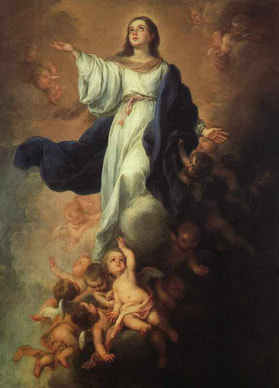 On November 1, 1950, Pope Pius XII issued the Apostolic Constitution Munificentissimus Deus (The Most Bountiful God) which declared “the Immaculate Mother of God, the ever Virgin Mary, having completed the course of her earthly life, was assumed body and soul into heavenly glory.” In doing so, Pope Pius defined for all time that the Assumption is a belief of the Catholic faith (cf. CCC, 966). And though the decree itself is only sixty-four years old, it succinctly shows that the belief spans all the way back to the beginnings of the Christian tradition. But what are the implication of this teaching and its feast day for the everyday faithful? First of all, it further illustrates Mary’s importance not only for Catholics but also for all mankind. This feast is but another way in which the Church honors the vessel that brought the Messiah into the world. It is through Mary that the human race received its savior. Therefore, one can see her Assumption into Heaven as a beautiful gift given to her by God. After living a truly exemplary life of faithfulness and love, God saw fit to bring her body and soul into paradise where, as PopePius puts it, “as Queen, she sits in splendor at the right hand of her Son, the immortal King of the Ages.” The Virgin’s Assumption, however, is also a gift to the faithful.The Holy Father writes, “while the illusory teachings of materialism and the corruption of morals…threaten to extinguish the light of virtue and to ruin the lives of men by exciting discord among them, in this magnificent way all may see clearly to what a lofty goal our bodies and souls are destined.” Mary was the first disciple of Jesus; she was the perfect disciple of Jesus. At the Wedding at Cana, she tells the servers, “Do whatever He tells you.” This is the same kind of trust all the faithful should try and emulate. And, after living a model life, she was gifted with her body and soul being brought up to Heaven. That is exactly the same hope that all Catholics (should) share. The Nicene Creed sums it up quite well: “He will come again in glory to judge the living and the dead and his kingdom will have no end…I look forward to the resurrection of the dead and the life of the world to come.” Catholics believe that at the end of time itself, when Christ comes to “render to each man according to his works, and according to his acceptance or refusal of grace,” all the dead will be resurrected (cf. CCC, 682). Those who enter Heaven will be restored, body and soul, to the gloried beings they were always meant to be before the Fall. Thus, the Assumption of Mary is not just a one-time occurrence, but rather a foretaste of what will happen at the end of days. It was not only a gift to the Blessed Mother, but also a gift to mankind. Humanity received a glimpse into what lies ahead for those who follow the example of a woman who put her whole heart, her whole faith, and her whole being into the care of a man she knew as her son and the Son of God. Victor David is a Collaborator with the Catholic Apostolate Center and is a staff member at The Catholic University of America, his alma mater, in Washington, D.C. He is a member of the Catholic University Knights of Columbus. Tomorrow we celebrate the Solemnity of the Most Sacred Heart of Jesus. When we hear the name, “Most Sacred Heart of Jesus,” most of us probably think of a statue that appears in many of our churches.: the image where Jesus stands with his heart, burning with joy and love for us, exposed to all. Many of us probably do not think any deeper about this statue, and yet we are called to more. Pope Francis, in his 2013 homily on the Most Sacred Heart of Jesus, said, “It is more difficult to let God love us than to love Him! The best way to love Him in return is to open our hearts and let Him love us.” Every time we see these statues we are reminded to open ourselves to the love of Christ and give ourselves completely to him as he does. He lays his heart open before us as an example of how to live our lives.
The readings for the Solemnity also give us great insight into the importance of the Most Sacred Heart of Jesus and how we can relate it to our lives. The first reading comes from the Book of Deuteronomy, which means “second law.” The most striking part of this passage is where Moses says, “It was not because you are the largest of all nations that the Lord set his heart on you and chose you, for you are really the smallest of all nations. It was because the Lord loves you” (Dt 7:6-11). These words are not just a reminder of the covenant that the Lord made with Abraham, but a foreshadowing and reflection on the sacrifice of Christ on the cross. Christ literally lays down his life, sets down his heart for us, the insignificant people that we are. Why? Because he loves us. He gives us his whole self so that we, in some small way or another, might experience the love of God more fully. The heart on statues of the Most Sacred Heart of Jesus is exposed to show us that he is “sett[ing] his heart” on us, and it burns with his love for us. John, in his gospel passage 4: 7-16, expounds upon this idea of love and demonstrates for us how the covenant made between God and Abraham has been fulfilled in the Gospel. He explains to us that God is love and it is through our love for each other that we come to know God and serve him. John tells us about the importance of Christ’s sacrifice, “so that we might have life through him,” and while we have not seen God, he calls us to have faith: “No one has ever seen God. Yet, if we love one another, God remains in us, and his love is brought to perfection in us.” We are not led blindly into a community of faith, but rather we are given a simple rule, to love others as God loves us. By following this commandment we remain one with God. This is the message of the Most Sacred Heart of Jesus. This feast day reminds us that Jesus gave us the ultimate example of love, laying down one’s life for another, and thus he set his heart upon us. It is easy to forget the humanity of Christ, after all he is the Son of God, walked on water, and rose from the dead, and yet he bled for us. When the soldier pierced his side with a spear, out flowed blood and water. The Solemnity of the Most Sacred Heart of Jesus reminds us of Jesus’ humanity and the significance of his sacrifice. He suffered, he felt pain, he literally laid down his life and set his heart upon us. It is our turn to pick up what God has given us and share it with the world. Let us open our hearts and share Christ’s love. Nicholas Shields is a recent graduate of The Catholic University of America in Washington D.C. and Immediate Past Grand Knight of the CUA Knights of Columbus. “He said to them: ‘… you will receive power when the Holy Spirit comes on you; and you will be my witnesses in Jerusalem, and in all Judea and Samaria, and to the ends of the earth.’ After he said this, he was taken up before their very eyes, and a cloud hid him from their sight. They were looking intently up into the sky as he was going, when suddenly two men dressed in white stood beside them. ‘Men of Galilee,’ they said, ‘why do you stand here looking into the sky? This same Jesus, who has been taken from you into heaven, will come back in the same way you have seen him go into heaven’” (Acts 1:7-11). Forty days ago, we celebrated the miraculous Resurrection of Jesus from the dead and joyful the start of the Easter season. Finally, after millennia of prophecies and expectation, the promise that humanity would be redeemed and restored in its relationship with God was fulfilled. Now Christ had risen in glory and conquered death by His Passion, allowing humanity to once again be united with its loving Creator (c.f. 2 Peter 1:4). This reunification of the disciples and their beloved Teacher was indeed a cause for celebration! What intense feelings of love and wonder must have resounded in the apostles’ hearts after their Master, Teacher, and Savior had been cruelly put to death only a few days ago. They believed that Jesus’ return meant that He would now “restore the kingdom to Israel” to finish His earthly ministry (Acts 1:6). “Not so, not yet,” Jesus corrects them (c.f. CCC 672). Instead, it was now time for Him to join the Father in Heaven since He had accomplished the Mission of atonement that He had been sent to earth for on the Cross (c.f. John 19:30). With that, Jesus was taken up before His followers into Glory. While they were still watching, whether out of wonder, awe, confusion, or fear as what to do next (perceptibly without Jesus), two heavenly messengers appear and urge the disciples not to stand there, looking up. Jesus would come again, they promised. Meanwhile, there was a mission to undertake; they were to go and wait for the Spirit, Who would help them take the next steps towards completing Jesus’ final instructions, which were, as St. Pope John Paul II put it, “the faithful expression of the Father’s will.” Before He was taken up, Jesus said to the disciples, “All authority in heaven and on earth has been given to me. Therefore go and make disciples of all nations, baptizing them in the name of the Father and of the Son and of the Holy Spirit, and teaching them to obey everything I have commanded you” (Matthew 28:18-20). Christ was planning something bigger than establishing a temporal kingdom on earth, as the Jews commonly thought their awaited Messiah would bring. The Apostles, moreover, were instructed to teach— to proclaim the Good News to the whole world. And they were to baptize in the name of the Father, and of the Son, and of the Holy Spirit. Like Jesus, they were to speak explicitly about the Kingdom of God and about salvation. The Apostles were to give witness to Christ to the ends of the earth. The early Church clearly understood these instructions and the missionary era began. And everybody knew that this missionary era could never end until the same Jesus, who went up to heaven, would come back again. (St. John Paul II, “Homily on the Solemnity of the Ascension of Our Lord,” May 24, 1979) We, too, in a sense, can stand with the apostles, looking heavenward to that place where our Lord ascended. We, too, can experience that intense wonder deep within each of us which transforms fear and tragedy, insecurity and tension into a peaceful certainty that floods the heart with loving warmth from God. From this, the same question posed to the disciples nearly two thousand years ago is asked of each of us even today: why do you stand looking up? The Church’s mission has always been that of the Great Commission, to spread the glorious, joyful, and redemptive news of Christ’s rising from the dead (c.f. John 3:16). As Saint Augustine testified, we are the Church and are commanded to accept this mission and not stand idly by in either amazement or apathy! Certainly, Holy Mother Church’s evangelization has endured obstacles, dogmatic disputes, and other setbacks over the centuries in bringing the Good News to the ends of the earth. No matter the challenge, the Church always pulls through since she has been founded by Christ Himself with the promise that “the gates of the netherworld shall not prevail against it” (Matthew 16:18). As the disciples and the Blessed Mother would experience on Pentecost Sunday, it is the Holy Spirit, the gift of the Father, Who is the source of the Church’s strength. It is He Who guides the Church in the way of Truth in the spreading of the Gospel, doing so through the power of God and not by means of the imperfect wisdom or strength of man. After having undergone the humiliation of His passion and death, Jesus took His place at the right-hand of God; He took His place with His eternal Father. But He also entered heaven as our Head whereupon, in the expression of Leo the Great, the glory of the Head became the hope of the body… our nature is with God in Christ. And as man, the Lord Jesus lives forever to intercede for us with Father. At the same time, from His throne of glory, Jesus sends out to the whole Church a message of hope and a call to holiness. Because of Christ’s merits, because of His intercession with the Father, we are able to attain justice and holiness of life, in him… The power of the glorified Christ, the beloved Son of the eternal Father, is superabundant, to sustain each of us and all of us in the fidelity of our dedication to God’s Kingdom. The efficacy of Christ’s Ascension touches all us in the concrete reality of our daily lives. Because of this mystery it is the vocation of the whole Church to wait in joyful hope for the coming of our Savior, Jesus Christ. (St. John Paul II, “Homily on the Solemnity of the Ascension of Our Lord,” May 24, 1979) As part of the “New Evangelization,” we are reminded of this command to reveal the Truth of our resurrected Lord through our words and actions in accordance with how we are called to live as Christians, that is, with love (c.f. John 13:34-35). Like the evangelizers before us, we can expect face challenges when spreading the Gospel message, namely persecution (c.f. John 15:18, Romans 8:35-39, 2 Timothy 3:12, 1 Peter 4:16-19). Ah, but what a price to pay for the glory of God! Remember, too, that Christ promised that He would always be with us in our ministry (c.f. Matthew 28:20, Galatians 2:19-20)! As Pope Francis noted during his fourth general audience, Jesus is no longer “in a definite place in the world as He was before the Ascension… He is now in the lordship of God, present in all space and time, next to each of us.” We can always turn to Him in prayer; He, in turn, will sustain us with strength, grace, and Love. Given the difficulty of our task (often requiring great sacrifice on our part), this is indeed a great comfort! In addition, it is Christ as both God and man Who brings our humanity before God to intercede for us. Finally, the Ascension of the Lord is also our Feast because we have ascended with the Lord! The Feast presents an opportunity to reflect upon the relationship between our profession of faith and our daily life. It is the start of the evangelization of the world by Christ’s disciples and the call for us to do that same Work, started nearly two millennia ago, in joyful witness to the Redeemer of the world. The Solemnity of the Lord’s Ascension must also fill us with serenity and enthusiasm, just as it did the Apostles who set out again from the Mount of Olives “with great joy” (Luke 24:52). Like them, we too, accepting the invitation of the “two men in dazzling apparel”, must not stay gazing up at the sky, but, under the guidance of the Holy Spirit must go everywhere and proclaim the saving message of Christ’s death and Resurrection. His very words, with which the Gospel according to St Matthew ends, accompany and comfort us: “and lo, I am with you always, to the close of the age” (Matthew 28:20). (Pope Emeritus Benedict XVI, “Homily of His Holiness During the Pastoral Visit to Cassino and Monte Cassino,” May 24, 2009) Thomas Wong is an undergraduate at The Catholic University of America, currently studying abroad in Rome, Italy. In my blog post on God as Infinite Love posted last Thursday, I reflected on praying as an active participation with God as the infinitely loving Father. What it did not address, however, were the practical realities concerning one’s life of prayer. To put it another way, it didn’t mention that such a task was hard to live out! With all the distractions and chaos of everyday life, it is too easy to fall into the trap of forgetting one’s dependence on God for all things. This trap, due to the human condition of sin, is in a way inevitable. So how does one persevere in praying when such distractions and forgetfulness occur?
The easy answer would be “don’t get distracted and don’t forget you depend on God for all things!” But let’s be honest with ourselves. Is that really practical? In a world of social media, can we, as humans, keep our focus on God at all times? I think most people, if sincerely evaluating their own lives, would say no. What do we do, then, to refocus on God and return to encountering His ceaseless love? I think there is a two-fold answer to this question that has been answered by Pope Francis and Blessed John Paul II. The only way we are even capable of persevering, that is, getting ourselves back on route, is to realize and always remember God as Infinite Mercy. In addition, we must also humbly accept his never-ending forgiveness, for doing such is an act of recognizing that we need Him (and not the other way around!). Blessed John Paul II dedicates an entire encyclical for reflecting on God’s Mercy. In Dives in Misericordia, he uses the parable of the prodigal son as an analogy (which was the Gospel reading two Sundays ago, if you recall). The son, who received a portion of his father’s inheritance, decided to spend it on a “loose lifestyle.” However, he soon realized what he had done, and how it had left him hungry. He reached such a point of guilt and hunger that he made the decision to go back to his father and say ‘Father, I have sinned against heaven and before you; I am no longer worthy to be called your son. Treat me as one of you hired servants.” But when the son heads back to his father’s house, before he can even finish his prepared statement, the father orders his servants to put the best robe on him and prepare a feast of celebration. This scripture passage shows that God’s mercy is an act of faithful love. God is faithful to his fatherhood and faithful to the Infinite Love He offers us in prayer. This is His Mercy, and it is a reminder to us all that God’s Love will never fail us. Think how generous this is! Looking back at the parable, the generosity of the father (when the son returns home) is so great, it angers the oldest son. The father responds, saying, “but now we must celebrate and rejoice, because your brother was dead and has come to life again.” The father’s fidelity to his lost son is totally and completely concentrated on the dignity of the son. This is the same way with God, our Father. The parable reveals that God’s Mercy is, in itself, an act of renewing His gift to us, our humanity. What does this have to do with our sought-out questions? This understanding of God’s Mercy, that is, as the prodigal son’s father, explains to us why we need God’s Love and Mercy. God’s Love and Mercy give us our human dignity. When we lose sight of God in our life, we lose sight of our human dignity. We lose it to such an extent that, deep down, we realize we are missing something. We realize we need God’s Mercy and Love to renew our human worth. It makes perseverance in a life of prayer that much easier, because we don’t have to worry about God abandoning us! However, it also makes it that much harder, because acknowledging our need of God requires a deep sense of humility. In his first Angelus, Pope Francis reminds the crowd that God never gets tired of forgiving, but we get tired of asking for His forgiveness. We must strive to come to God with an open and humble heart, as God will be eagerly waiting to offer His Forgiveness. Pope Francis does not just remind us to never tire of asking for God’s forgiveness, but he is a living testimony to that message. Just look at his interview with America Magazine. Before he talks about the Church needing to be a hospital of mercy, he first answers the question concerning who Pope Francis is. His answer: “I am a sinner whom the Lord has looked upon.” Before encouraging others to be merciful, he recognizes that he himself is in need of God’s mercy. He humbly accepts God’s Mercy Like the prodigal son, we wander off in our lives until a certain point hits us where we realize we are missing something. What do we need to do to ensure that we are able to get back to prayer, that encounter with God’s love? We first need to obtain the virtue of humility, like Pope Francis, to realize that we are lost and in need of God to renew us. To persevere in praying, all we need to do is say the words Pope Francis said in the interview: “I am a sinner whom the Lord has looked upon.” Out of that humility, we can accept God’s Infinite Mercy, because we know, that like the prodigal son’s father, He will always be faithful. For some simple reflection, listen to this song by Matt Maher. It has helped me many times: http://www.youtube.com/watch?v=LuvfMDhTyMA Andrew St. Hilaire is the Assistant to the Director of the Catholic Apostolate Center "Not all of us can do great things. But we can do small things with great love." -Blessed Mother Theresa  Growing up attending Catholic schools my entire life, the life and teachings of Mother Theresa were always something that I was familiar with. There is something about an Albanian woman who gives up her life to serve the poor and dying in the slums of Calcutta that makes people stop and evaluate their own lives. It’s incredible to imagine one person completely uprooting their own life and going to try to combat the extremes of poverty in India. Mother Theresa embraced Catholic Social Teaching on the dignity of the human person and went above and beyond in her ministry. In theory, we would all like to have as much of an impact as Mother Theresa. However, the average person today recognizes his or her own inability to make such an extreme lifestyle change. We are comfortable in our lives today and uprooting them like Mother Theresa did is something we are not prepared to do. Making a huge impact, while desirable, is not usually possible for most of us. Even Mother Theresa recognized that her decisions were extreme, and not something most people are prepared to do. She knew that not everyone could do what she did with her life. Her words remind us that even if we can't make such an extreme life-change, we can still impact the world on a smaller, but still meaningful, scale. In this last week, these words have taken on a deeper meaning for me. Having just finished over a week of training to be a Resident Assistant at my university. I am exhausted and excited, but mostly, inspired. One of the main points that our supervisors made during our training is that we as RA's have a tremendous impact in the smallest ways possible. Mother Theresa's words are a good reminder to me that being a presence with my residents is the most important thing I can do. Sometimes, all a student needs is someone to listen to them, no matter how insignificant their problems may seem. College students can make poor decisions, and the role of an RA is often to discipline those decisions and enforce rules that many of these students disagree with. We are seen as students with nothing better to do than get our residents in trouble. The reality is, I enforce the rules and document my residents because I care about them. I recognize that very often it will feel like a thankless task, my residents will blame me initially when their decisions result in disciplinary sanctions. But I hope that even when I do have to have these harder conversations and confrontations, they will eventually come to realize that I do my job out of love for them. In our daily lives, we often forget how even the smallest gestures can make the most meaningful impacts. If we live our lives as Mother Theresa suggests, doing the small things with great love, our lives might have even more of an impact than we realize. In the gospel this past weekend, we heard the “greatest commandments” from Christ himself: “You shall love the Lord, your God, with all your heart, with all your soul, and with all your mind… and you shall love your neighbor as yourself.” (Matthew 22:37,39). Love can take many forms, and the smallest gestures can be the biggest examples of love. Rebecca Ruesch is Blog Editor at the Catholic Apostolate Center.
The story of the Blind Bartimaeus is one of the most telling encounters between Jesus, our Savior, and our broken humanity so critically in need of salvation. The truth is we are all Bartimaeus’; we all deeply desire to receive the sight or “insight” only the Lord can provide.. But what is it that we long so much to see? And, what keeps or blinds us from seeing it?
I believe, as experienced in my own life, we all long to see that which all other sight is meant for, the Way. That is to say, we all long to see the way to our healing, our happiness, our security, but most of all we all truly long to see He who is the Way to our salvation. So what keeps us from seeing Him who is the Way, the Truth and the Life (Jn 14:6)? My own sight has often been blinded by the fears and anxieties brought on by the brokenness of my own human condition and triggered by the brokenness of a fallen world, itself so desperately in need of seeing the way of salvation. This anxiety that so many of us struggle with can lead to a type of spiritual blindness with, perhaps, more drastic consequences than any Bartimaeus’ physical blindness had caused. This spiritual blindness is the type that can challenge or even cripple the strongest of faiths. Yet, like many of the paradoxes found in scripture, this blindness can, through the Grace of God, serve to open our senses to what we must hear: the footsteps of the One who approaches. And if, like Bartimaeus, we come to courageously trust our Lord and learn to turn away from the surrounding fear that disables our discernment, what we really come to hear is His voice calling us; giving us our vocation to come and follow him: “On hearing that it was Jesus of Nazareth, he began to cry out and say, "Jesus, son of David, have pity on me." And many rebuked him, telling him to be silent. But he kept calling out all the more, "Son of David, have pity on me." Jesus stopped and said, "Call him." So they called the blind man, saying to him, "Take courage; get up, he is calling you."(Mark 10:47-49) When I hear the story of the blind Bartimaeus I can’t help but reflect on my own encounter with the living Savior, especially as He passes through my mind and heart amid the pangs of a hostile and blinding crowd of anxious emotions. Another particularly telling part of the story is how Bartimaeus, the “son of honor” repeatedly calls out to our Lord the, “Son of David”. King David was a man, much like Bartimaeus, who was destined for honor and dignity. Yet, he was blinded by his own brokenness and crippled by the powerlessness he felt against his own humanity. King David, like Bartimaeus, in Psalm 51 cried out to God with an unwavering confidence in God’s Divine Mercy. My own battle with anxiety has led me to cherish a deep sense of humility. I am not in control, I don’t have all the answers, I often cannot endure on my own, I need others, I need communion, I need Christ. Moreover, we hear the words of the prophet “be not afraid, I am with you” (Isaiah 41:10). And again, we continue to hear the words of St. Paul and all the martyrs who boasted of their weaknesses which won for them the strength of Christ (c.f. Cor. 12:9-10). So let us cry out! With all humility and confidence and faith in the words of another one of Christ’s redeemed…Domine, si vis, potes me mundare! “Lord, if you wish, you can make me clean.” (Mt. 8:2) Bart Zavaletta is a Theology teacher at Skutt Catholic High School in Omaha, NE. An excerpt from Cardinal Sodano’s homily, given this morning during the Mass for the Election of a Roman Pontiff (full text): Brothers and sisters in Christ today’s Gospel takes us back to the Last Supper, when the Lord said to his Apostles: “This is my commandment: that you love one another as I have loved you” (John 15:12). The text is linked to the first reading from the Messiah’s actions in the first reading from the prophet Isaiah, reminding us that the fundamental attitude of the Pastors of the Church is love. It is this love that urges us to offer our own lives for our brothers and sisters. Jesus himself tells us: “There is no greater love than to lay down one’s life for one’s friends” (John 15:12). The basic attitude of every Shepherd is therefore to lay down one’s life for his sheep (John 10:15). This also applies to the Successor of Peter, Pastor of the Universal Church. As high and universal the pastoral office, so much greater must be the charity of the Shepherd. In the heart of every Successor of Peter, the words spoken one day by the Divine Master to the humble fisherman of Galilee have resounded: “Diligis me plus his? Pasce agnos meos… pasce oves meas”; “Do you love me more than these? Feed my lambs… feed my sheep!” (John 21:15-17) In the wake of this service of love toward the Church and towards all of humanity, the last popes have been builders of so many good initiatives for people and for the international community, tirelessly promoting justice and peace. Let us pray that the future Pope may continue this unceasing work on the world level. Moreover, this service of charity is part of the intimate nature of the Church. Pope Benedict XVI reminded us of this fact when he said: “The service of charity is also a constitutive element of the Church’s mission and an indispensable expression of her very being; (Apostolic Letter in the form of a Motu Proprio Intima Ecclesiae natura, November 11, 2012, introduction; cf. Deus caritas est, n. 25). It is a mission of charity that is proper to the Church, and in a particular way is proper to the Church of Rome, that in the beautiful expression of St. Ignatius of Antioch, is the Church that “presides in charity” “praesidet caritati” (cf. Ad Romanos (preface).; Lumen Gentium, n. 13). My brothers, let us pray that the Lord will grant us a Pontiff who will embrace this noble mission with a generous heart. We ask this of the Lord, through the intercession of Mary most holy, Queen of the Apostles and of all the Martyrs and Saints, who through the course of history, made this Church of Rome glorious through the ages. Amen.
It is no secret that when disaster strikes, human beings band together to take care of each other. Regardless of race, age, gender, or belief system people come together to help rebuild homes and people’s spirits. This held true in the wake of Hurricane Sandy: a hurricane that barreled up the eastern seaboard bringing destruction to parts of New Jersey and New York. Across the country, people held food and clothing drives to try and bring relief to the affected areas. In the midst of a tragedy faith, hope, and love were restored because of the actions of people across the country.
Thankfully, there was no damage done to my home when Hurricane Sandy hit, but some of my other friends were not as lucky. Their homes have been destroyed and all their memories have been washed away with the floodwaters. After talking to some of the people who did lose everything, they said their faith in humanity was restored through the charity of others. When they said it, I didn’t think much about it. But then I began to think of what the word charity and being charitable truly means. St. Francis of Assisi said, “Preach the Gospel, and if necessary, use words”. Charity is an action that embodies this idea. When sharing our faith and living out what it means to be a Catholic, we do not have to use words and preach to people. Instead, we can use actions to evangelize and show the world what it truly means to be a Catholic. Actions speak louder than words and this holds true for the New Evangelization. This has been true for years, but I have not seen it displayed as prominently as I have through the hurricane relief efforts. Regardless of age, people are pitching in and donating both time and money. Their actions are showing what it means not only to be charitable but also Christian. Young adults can use charity and Catholic Social Teaching to live out the New Evangelization not only during a time of crisis but during their everyday life. Catholic Social Teaching provides guidelines that people can use to live a just and moral life. Seven key themes of the Church’s social teaching include: life and dignity of the human person, call to family, community, and participation, rights and responsibilities, option for the poor and vulnerable, dignity of the rights of workers, solidarity and care for God’s creation. Catholic Social Teaching offers ways to live out our faith in everyday life and helps us in becoming tangible signs of Christ’s love. I tell my students everyday that what we learn in class does not stop when they walk out the door. We are all walking signs of God’s love and it is our mission to spread it to everyone. Through our actions let us work to restore faith, hope and love in our world and be part of this New Evangelization. Erin Flynn is a religion teacher at The Mary Louis Academy in New York. |
Details
Archives
July 2024
Categories
All
|
About |
Media |
© COPYRIGHT 2024 | ALL RIGHTS RESERVED

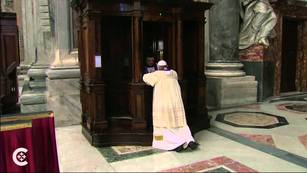

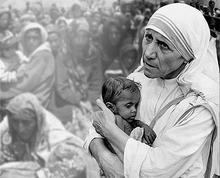
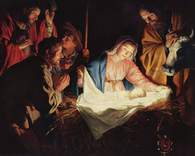
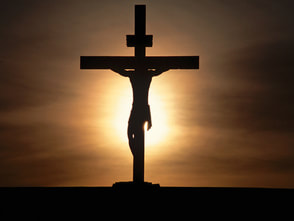

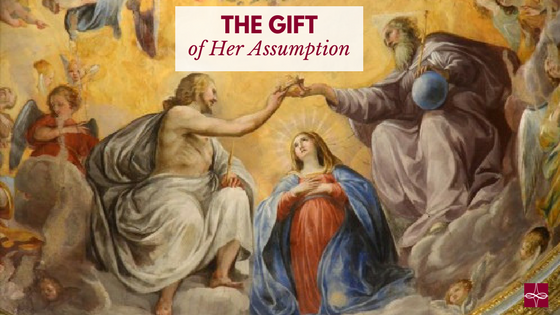
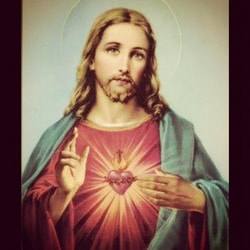
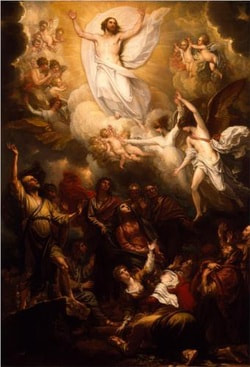
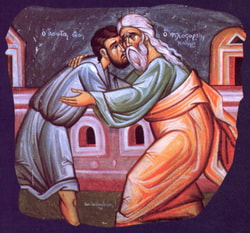
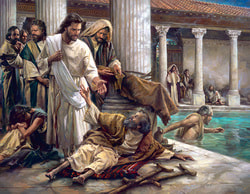
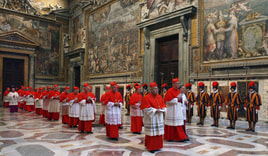

 RSS Feed
RSS Feed